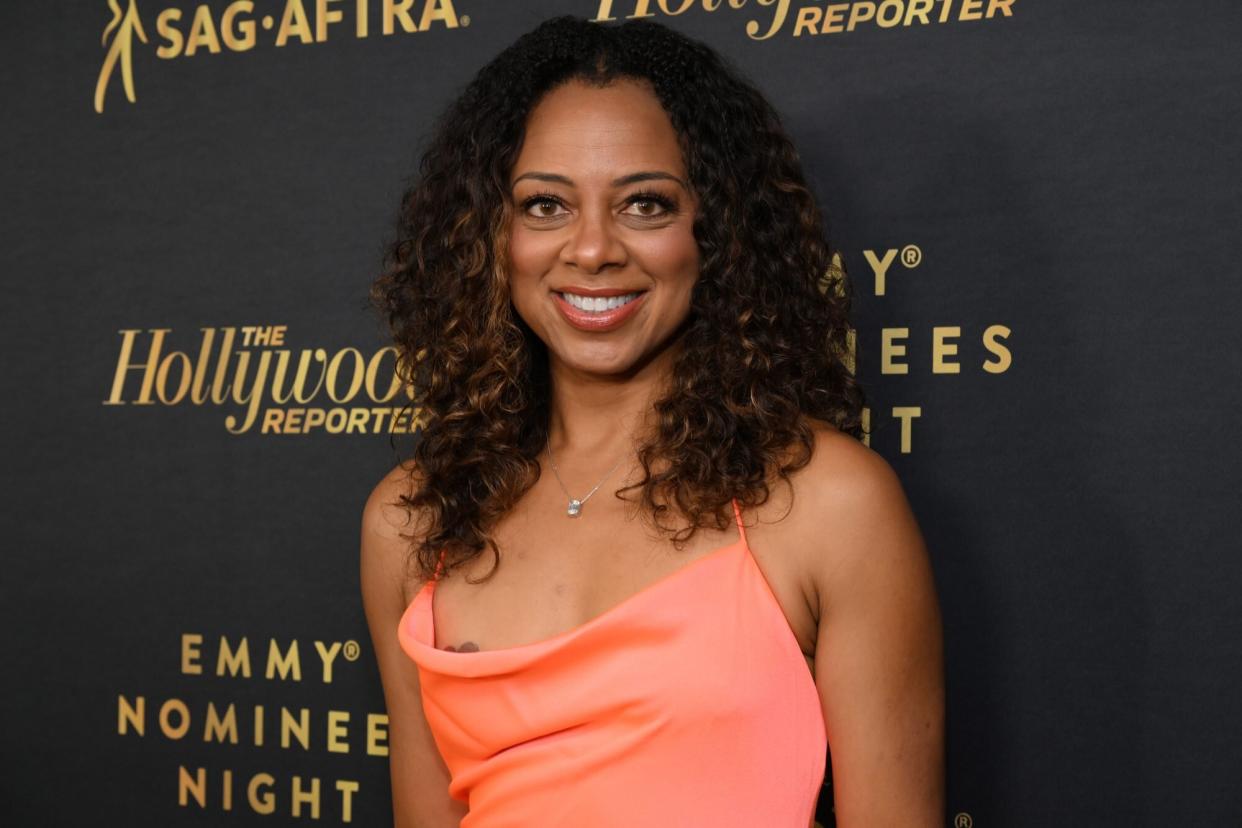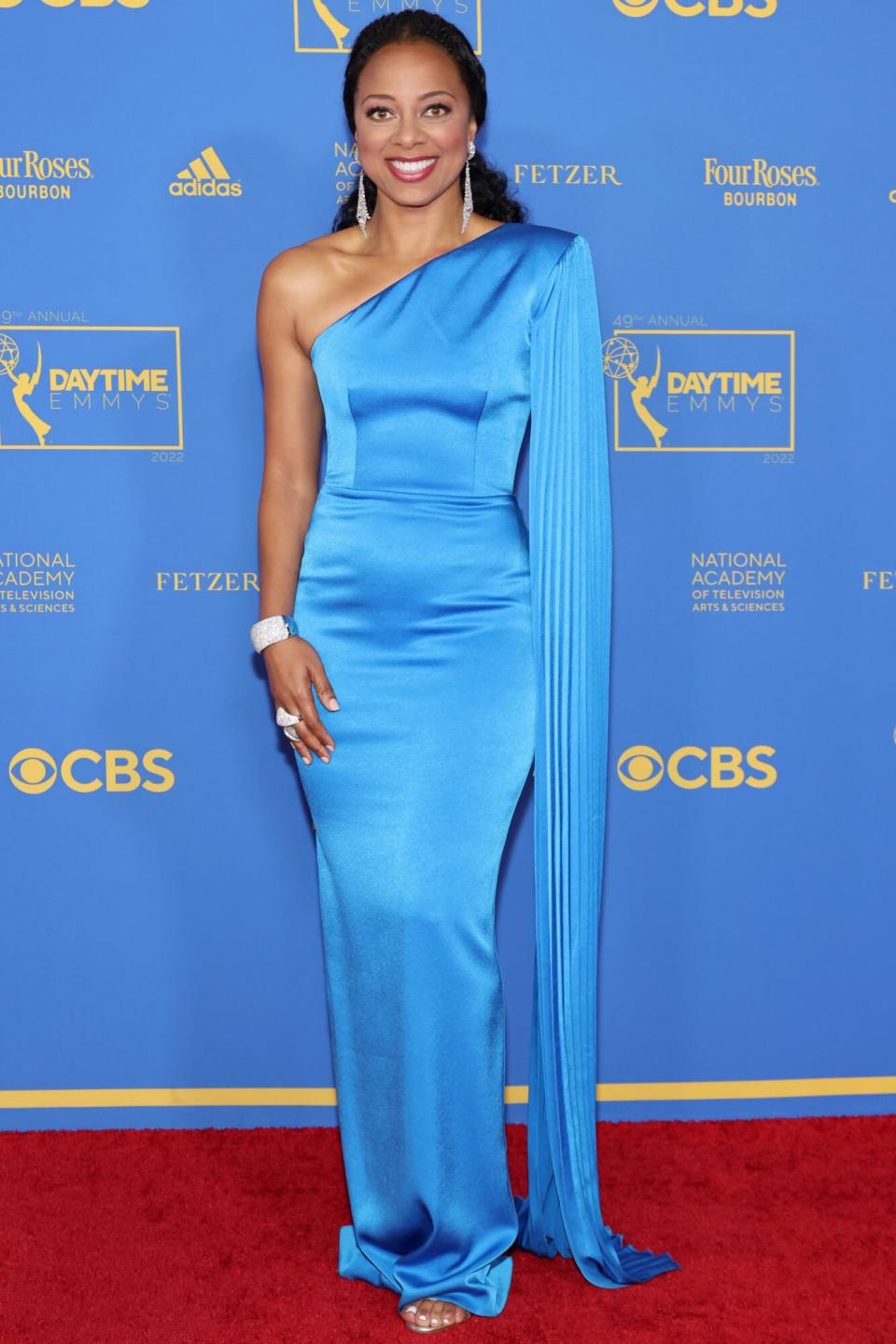Nischelle Turner Underwent 3 Surgeries in 10 Years from 'Debilitating' Fibroids: 'Not an Easy Road'

- Oops!Something went wrong.Please try again later.
- Oops!Something went wrong.Please try again later.
Michael Kovac/The Hollywood Reporter via Getty
Nischelle Turner spent years managing "debilitating" pain, assuming her discomfort was simply a part of being a woman, before learning that she was living with fibroids.
The co-host of Entertainment Tonight — which airs its season premiere on Sept. 12 — opened up to PEOPLE about the years of struggling with fibroids, a painful condition where noncancerous growths form on the uterus.
"I've had incredibly tough periods my entire life, very heavy, very painful. But in not knowing better, I always thought this is how it's supposed to be, this is what women go through," Turner, 47, tells PEOPLE. "But what I know now is that's absolutely not the case. So it's been since I was a teenager that I had 'symptoms' but I just never knew."
As a teenager, Turner says doctors and physicians gave her "quick fixes" like birth control to regulate her pain, which only made matters worse. She went years without any answers or solutions until a doctor first mentioned fibroids when she was in her 30s.
According to the U.S. Department of Health and Human Services, fibroids are relatively common — 20 to 80 percent of women develop them by the time they reach age 50 — and are most likely to occur in women in their 40s and early 50s.
"When I was 35 years old, my stomach had grown to a size that looked like I was three months pregnant," Turner explains. "And that was because the fibroids had grown so big and were protruding and pushing out my stomach. It was almost like an alien because I could move them around and I knew it wasn't right so I went and got checked."
RELATED VIDEO: Padma Lakshmi Explains How Her Battle With Endometriosis Left Her Occasionally 'Bedridden' for Over 20 Years
Turner's fibroids were quickly confirmed with a transvaginal ultrasound and she was told she would need a major surgery, a myomectomy, to remove them.
Following the procedure and roughly six weeks of recovery, Turner says she thought everything was fine moving forward. However, her fibroids came back when she was 40 years old — needing 13 surgically removed — and returned again at age 45.
"This time my doctor said, 'Well maybe you should get a hysterectomy.' A lot of time I feel like people try to put women over 40 out to pasture for so many different reasons. But I really felt like I'm a vibrant woman, I'm 45 years old, I feel good. I'm still producing eggs. I don't know what my life is going to be. I don't want to get a hysterectomy at this point. I still feel like I'm too young," Turner says. "And so I opted for yet another myomectomy. So it was my third surgery in 10 years."
In her latest surgery, doctors removed 24 fibroids from her uterus after detecting only five from her original ultrasound. Turner admits that the experience has been difficult to manage because she didn't receive much information on fibroids and couldn't understand why they kept coming back.
"It's tough because you start to question yourself as a woman," she admits. "You start to ask, 'What is wrong with me that this keeps happening?' You don't really know other people to talk to about it. I didn't even know my mother had a hysterectomy at the age of 28 from fibroids."
"You don't really know what's causing them to grow. You feel alone so many times, you feel ashamed so many times," Turner continues. "And it's debilitating because you don't want to go anywhere. You don't want to leave the house, you just don't know what's going to happen to you each day. It affects what you wear, it affects how you look at yourself, all of those things. It's not an easy road."
RELATED: Cynthia Bailey Says She Was In a 'Dark Place' Before Receiving 'Amazing' Fibroid Treatment

Amy Sussman/Getty
Turner explains that since her last surgery, she's feeling a lot better. The TV personality says the procedure was an extra push to get more information about what's been happening to her body. She did a "complete body reset" by working with a health and wellness coach in order to "heal" herself from the inside out.
"I'm feeling really great, but I'm scared. Mentally, I'm scared it's gonna happen again," she admits. "And I told myself, if they come back again, you have to get a hysterectomy. So I'm very scared about that."
Turner's experience has inspired her recent partnership with the Black Women's Health Imperative and Sen. Cory Booker to raise awareness on how fibroids disproportionately affect the Black community in hopes of raising money for research and treatment.
"There's not a lot of funding. There's definitely no legislation in Congress, and I really feel like there should be. This is an illness that affects a huge part of the population," she explains.
Never miss a story — sign up for PEOPLE's free daily newsletter to stay up-to-date on the best of what PEOPLE has to offer, from juicy celebrity news to compelling human interest stories.
According to a report from the University of Michigan, nearly a quarter of Black women between the ages of 18 and 30 have fibroids, while that's true of just 6% of white women. And by age 35, 60% of Black women have fibroids.
"So thankfully, Sen. Booker's office recognizes this and wants to work to bring funding and legislation. And the Black Women's Health Imperative is working with his office and has drafted some legislation," Turner continues. "So I appreciate him really standing in the gap because we don't get that support often."
"If I can do anything so that someone doesn't have to go through what I went through — three major surgeries on their body in 10 years — then that's what I want," she tells PEOPLE. "I don't want anybody to have to suffer like this and suffer in silence and not know how to handle their health, not have any funding or any information. I don't want that for anyone."

